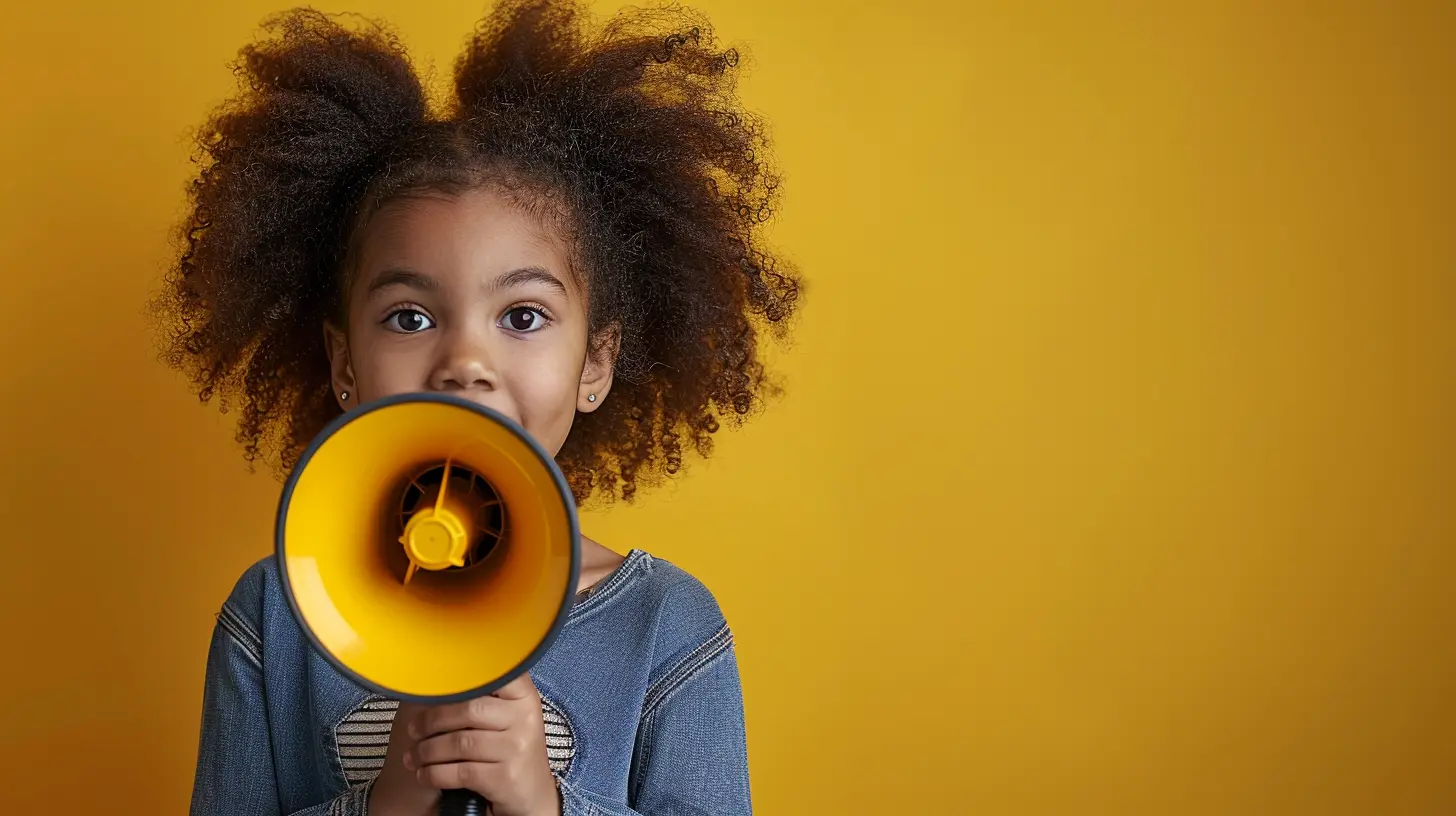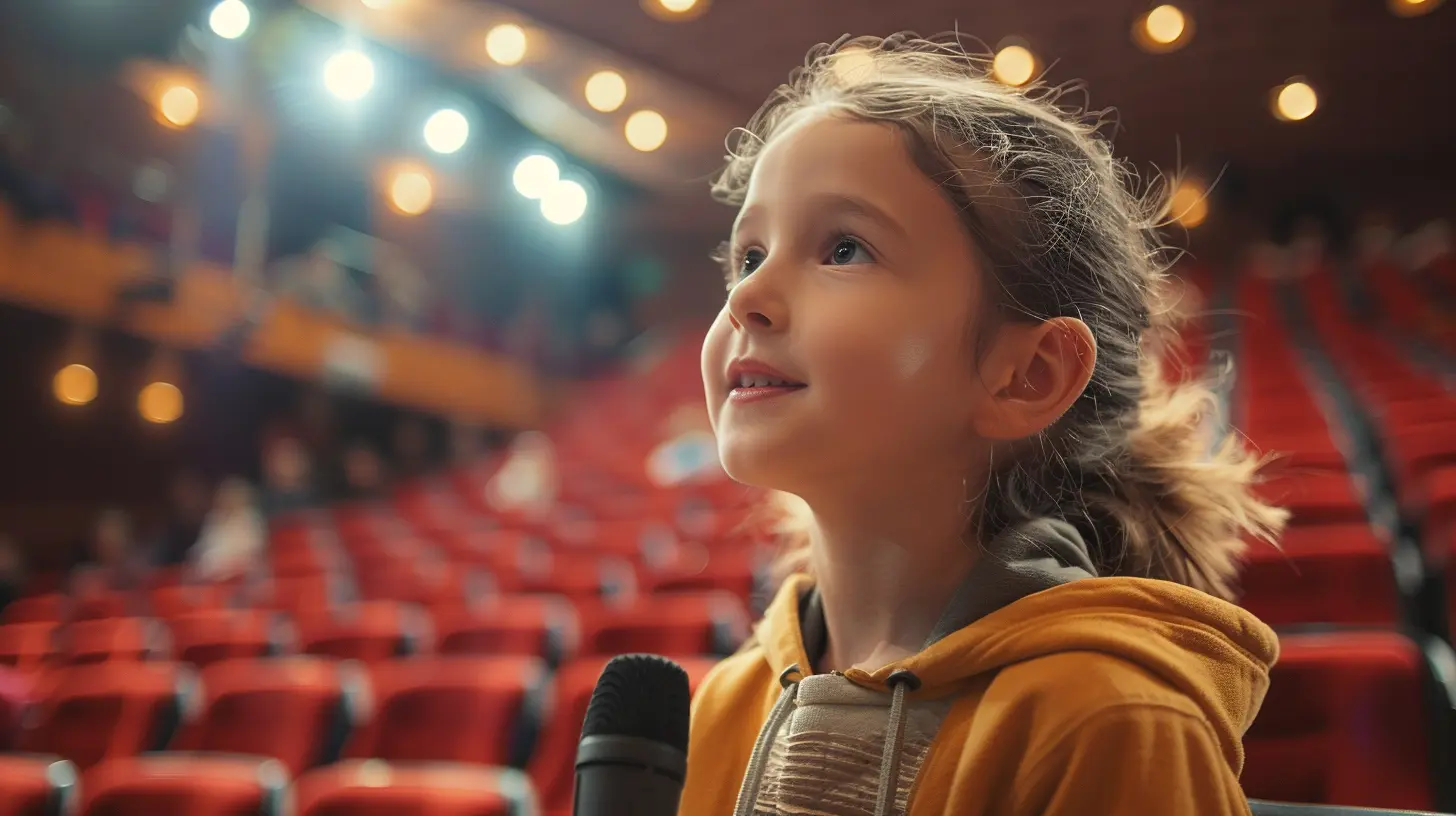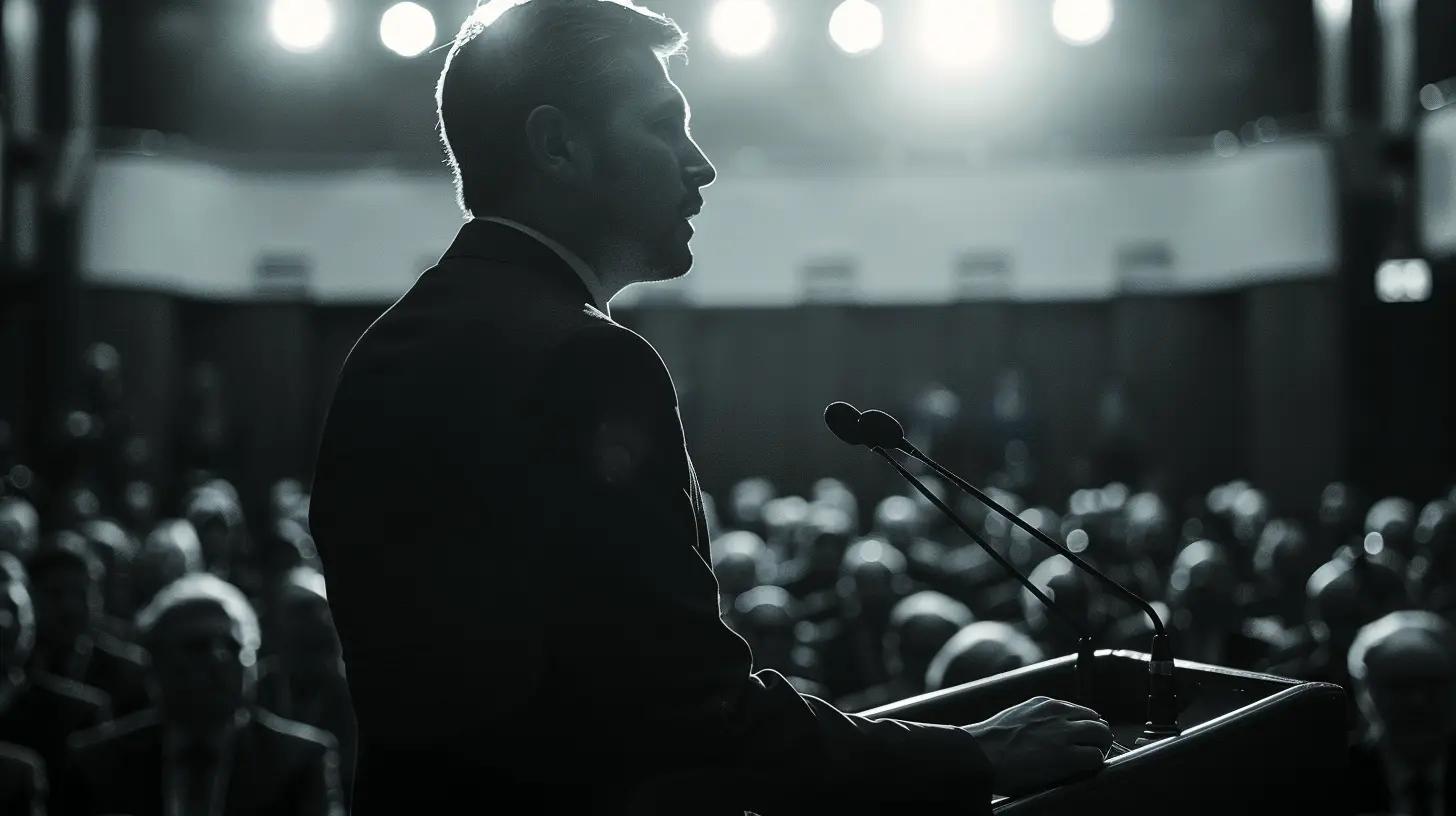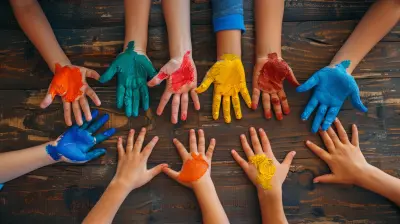The Role of Public Speaking in Building Confidence Early On
31 August 2025
Let’s be real—how many of us adults still get sweaty palms at the mere thought of speaking in front of a crowd? Now imagine giving kids the tools to conquer that fear early on. Sounds like a superpower, right? Well, that’s exactly what public speaking can become for children. It’s not just for future politicians or stand-up comedians—it’s for every child who needs their voice heard.
In this article, we’re diving deep into why public speaking plays a critical role in shaping confidence from a young age. We’re not going to bore you with stiff textbook jargon. Instead, we’ll walk through the real, relatable, and straight-up awesome benefits of getting kids to speak up, speak out, and speak well.

Why Confidence Even Matters in Childhood
Let’s start with the basics: why confidence?Confidence is like the foundation under your kid’s dream house. Whether your child wants to be a doctor, an astronaut, or the next YouTube sensation, self-esteem is the base that keeps everything from crumbling.
Confident kids are more likely to:
- Stand up for themselves and others
- Engage in healthy risk-taking
- Bounce back from setbacks
- Express their thoughts and emotions clearly
Now, cue the star of the show—public speaking. It’s one of the fastest and most effective ways to pour concrete into that foundation.

The Earlier, the Better
Just like learning a second language or playing a musical instrument, the earlier your child starts public speaking, the easier—and more natural—it becomes. Early exposure not only normalizes the experience but also makes it less intimidating down the road.Kids are naturally expressive. Have you ever seen a five-year-old describe their favorite cartoon episode? It's basically a TED Talk with more hand gestures and snack breaks. Channel that natural enthusiasm into a structured setting, and you've got the perfect recipe for growing confidence.

From "Umm…" to Unstoppable: How Public Speaking Builds Confidence
So, how does standing up and talking in front of others translate into real confidence? Let’s break it down.1. Finding Their Voice
Public speaking gives kids one of the most empowering tools in the world—their own voice.Think about it. When kids learn to articulate their thoughts, they realize that what they say matters. They stop being wallflowers and start stepping into who they are. It’s a quiet kind of magic that turns shy kids into expressive communicators.
2. Facing the Fear (and Winning)
Let’s not sugarcoat it—public speaking can be nerve-wracking. But that’s kind of the point.When children face something scary and come out the other side stronger, it builds resilience. Each time they speak, they’re rewiring their brain to associate public performance not with panic, but with pride.
It’s the same logic behind learning to ride a bike. You fall, you get back up, and eventually you’re pedaling confident circles around the block. Public speaking is that bike—but for your brain.
3. Improving Communication Skills
Let’s be honest—confidence isn't just about feeling good; it’s also about being understood. Public speaking teaches kids to:- Organize their thoughts
- Speak clearly and at the right pace
- Make eye contact (yes, even if it’s awkward at first)
- Use body language effectively
These communication skills don’t just work on stage; they carry over into everyday life. Classroom presentations, group discussions, even playdates—confidence in speaking turns all of these into opportunities instead of obstacles.
4. Getting Comfortable in Uncomfortable Situations
You know those "uh-oh" moments when kids freeze up during a school recital or clench up during a class debate? With public speaking practice, those moments become less frequent—and less paralyzing.Learning to navigate discomfort is one of the most underrated life skills. Public speaking puts kids in a controlled, supportive setting where discomfort can be safely addressed and managed.
5. Earning Recognition and Validation
Let’s not pretend kids don’t crave some applause. Who doesn’t like claps and “wow, you did great!”?When kids speak in public and receive positive feedback, it’s like rocket fuel for their confidence. They begin to associate their own expression with pride—not embarrassment.

Public Speaking Boosts More Than Just Confidence
Here’s a cool bonus: teaching kids to speak publicly benefits more than just confidence. It can have lasting impacts on their academic, social, and emotional development.Academic Game-Changer
Students who regularly engage in public speaking tend to perform better academically. Why? Because they know how to articulate answers, think critically, and present arguments. It’s like unlocking a cheat code in school.Stronger Social Bonds
Kids who can express themselves clearly find it easier to make and keep friends. Communication is the glue of relationships—when kids have it, they stick better with others.Enhanced Emotional Intelligence
Public speaking forces kids to think about their audience—how people feel, react, and engage. That’s empathy in action. When a child learns to read a room, they gain something incredibly rare: social and emotional awareness.Where and How Can Kids Learn Public Speaking?
So we've been hyping up public speaking like it’s the best thing since sliced bread—but how do you actually get your kid started?1. Start at Home
The dinner table is the OG stage. Encourage your child to share their day, recap a story, or even give a “report” on their favorite hobby. Make it fun, light, and pressure-free.You could also play games like:
- “Two Truths and a Lie” for storytelling
- Impromptu speeches (give them 30 seconds to talk about “Why Cheese is the Best Food”)
- Family debates—Pineapple on pizza: yay or nay?
2. School Programs and Clubs
Many schools offer speech and debate clubs or drama classes. If your child’s school doesn’t, consider petitioning for one. You’d be surprised how many educators are open to starting new extracurricular programs with enough interest.3. Community or Online Classes
Toastmasters Youth Leadership programs, local libraries, and community centers often offer public speaking workshops tailored for young people. Online programs and camps also provide flexible, fun environments for learning at your own pace.4. Get Techy With It
Got a kid who loves their tablet more than people? Use that to your advantage. Let them record speeches on their phone or create mini YouTube-style videos. Watching themselves can help identify areas to improve while building confidence in front of a camera.
What If My Kid is Super Shy?
First off, it’s totally okay. Not every child wants to be the next Oprah, and that’s cool.Public speaking doesn’t have to mean center stage in front of hundreds. It can mean:
- Speaking one-on-one with a teacher
- Sharing ideas in a small group
- Practicing with trusted family members
The goal isn’t to change who your child is. It’s to help them feel comfortable using their voice—however they choose to do that.
Encouraging Without Pushing
Here’s the thing: confidence can’t be forced. You can’t drop your kid in front of a mic and expect a miracle.Support their journey. Celebrate progress, no matter how small. If your child goes from mumbling to making eye contact, that’s a win. If they volunteer to speak in class, throw a mini party!
Kids don’t need perfection. They need safe spaces, encouragement, and a few messy, hilarious, awkward moments to help them grow.
Final Thoughts: It’s More Than Just Talking
Public speaking is like a gym for your kid’s inner self. Sure, they might stumble over their words or forget their speech, but each experience builds strength inside them. Confidence doesn’t come from being perfect—it comes from showing up, trying hard, and realizing you survived.Whether your child becomes the next public speaking superstar or simply learns to speak up for themselves at school, you’ve given them a gift that lasts a lifetime.
So go ahead—hand them the metaphorical mic. Their voice matters.
all images in this post were generated using AI tools
Category:
Building Self EsteemAuthor:

Liam Huffman
Discussion
rate this article
1 comments
Margaret Franco
Public speaking plays a crucial role in fostering early confidence in children. Engaging in speaking activities helps them develop communication skills, overcome anxiety, and build self-esteem, laying a strong foundation for personal and professional success later in life.
September 14, 2025 at 3:54 PM

Liam Huffman
Absolutely! Public speaking is essential for children's confidence and communication skills, paving the way for their future success.


